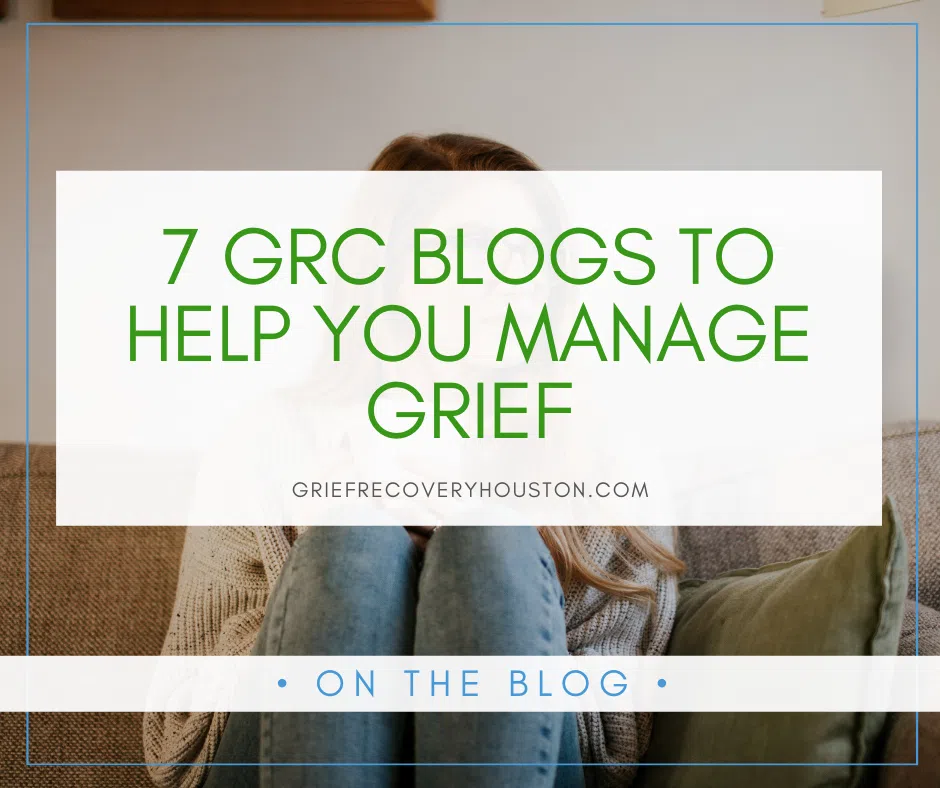- Unpacking Grief and Disability - July 8, 2024
- Breaking the Stigma: 5 Blogs to Better Understand Suicide - May 21, 2024
- 4 Tips for Better Sleep Hygiene - March 4, 2024
 At some point or another, we will all experience grief. Grief is an intense emotion, so it makes sense that we won’t want to be dealing with it all the time. We’ve all had to get more up close and personal with grief in the last year than we’re used to, and it can be scary to think about having to feel these feelings forever. Learning to manage grief and finding ways to move through the grieving process even when you’re feeling hard things is a difficult task. If you’re struggling with grief, you may just want some reassurance that these feelings won’t last forever. The good news is that there are ways to manage the grieving process so you can go on living your life while you grieve.
At some point or another, we will all experience grief. Grief is an intense emotion, so it makes sense that we won’t want to be dealing with it all the time. We’ve all had to get more up close and personal with grief in the last year than we’re used to, and it can be scary to think about having to feel these feelings forever. Learning to manage grief and finding ways to move through the grieving process even when you’re feeling hard things is a difficult task. If you’re struggling with grief, you may just want some reassurance that these feelings won’t last forever. The good news is that there are ways to manage the grieving process so you can go on living your life while you grieve.
Grief is painful, and we naturally try to avoid pain as much as possible.
However, when we ignore grief, it tends to make it feel worse. So, while it’s painful to talk about grief, keeping it bottled up can lead to negative things like increased irritability, feeling numb, changes in appetite, aches and pains in your body, and even self-harming behaviors. Feeling, unpacking, and understanding our grief is the grieving process.
Grief usually starts out more intensely – you may experience depression, anxiety, changes in sleep, mood swings, fatigue, loss of appetite, and more. As time goes on, you may notice that these feelings start to lessen or even go away. Some research shows that these intense symptoms of acute grief tend to peak at 6 months, but that’s not a hard and fast rule. It’s normal to feel feelings of grief long after the event that caused it, so if that’s the case for you there’s nothing wrong with you.
We are never truly done with our grief.

Our feelings of loss or devastation don’t go away. We don’t suddenly forget what it is we have lost. An event that causes grief is a life changing event, and you may start to look back at your life in terms of “before” and “after”. That’s not to say that grief can never be healed, and that you will be in this intense emotional state for the rest of your life. Grief is often acute in the immediate aftermath, but it lessens in intensity over time as we learn to cope. The grieving process means that we learn how to sit with our grief, to understand it, and learn ways to cope with the feelings that come up.
Remember, grief is defined as “the conflicting feelings caused by the end of or change in a familiar pattern of behavior.” Grief is caused by many things, not just a loss of life. Things like moving jobs, changes in financial status, divorce, lost friendships, loss of faith, and more can all cause real, intense grief. How long grief lasts can depend on a number of things, so there is no one size fits all approach to the grieving process. That is why therapy can be so crucial in the aftermath of grief – a trained therapist can help you in specific, personalized ways to cope with what’s causing you pain.

 The grieving process has no timeline, so there are no hard and fast rules you need to follow.
The grieving process has no timeline, so there are no hard and fast rules you need to follow.
If we move on from the grieving process too fast, we can experience incomplete grief, so it’s important to give our grief the time and space that it needs. There’s a saying out there that “time heals” and in this case, it’s pretty true. Over time, as you sift through your feelings and memories and find ways to ease your suffering that make you feel better, you will notice that your sense of grief has started to lessen.
It’s very similar to suffering an injury in a car accident. If you break your leg in a car crash, at first, you probably won’t even be able to move your leg without pain, let alone stand on it. But as you give your bones and muscles a chance to heal, over time you can put more and more weight on your injured leg. You might always experience a twinge of discomfort, but eventually, you will be able to do the things you used to do before the injury.
The twinge in your leg is just the reminder of what you’ve been through. However, if you try to put weight on your broken leg before it’s healed, you run the risk of creating even more damage and pain for yourself that you will then have to heal from. Although it can be frustrating to be limited for a brief time, ignoring what you need can just set you back further and make the process of grieving go on longer.
It’s also important to remember to not judge yourself for your grieving process.

The time you spend feeling acute grief doesn’t say anything about you. You’re not wiredwrong for feeling what you’re feeling. Grieving for a long time doesn’t mean you’re unhealthy, and neither does grieving for a short time. What matters is what feels right to you and your situation. When you notice judgment for your grieving process creep in, try to be kind to yourself. If you have experienced a loss and wish to move beyond the pain, Grief Recovery Center in Houston, TX can support you as you work through the grieving process. It can also be helpful to find an outlet for your feelings, such as a grief and loss support group.






No comments yet.